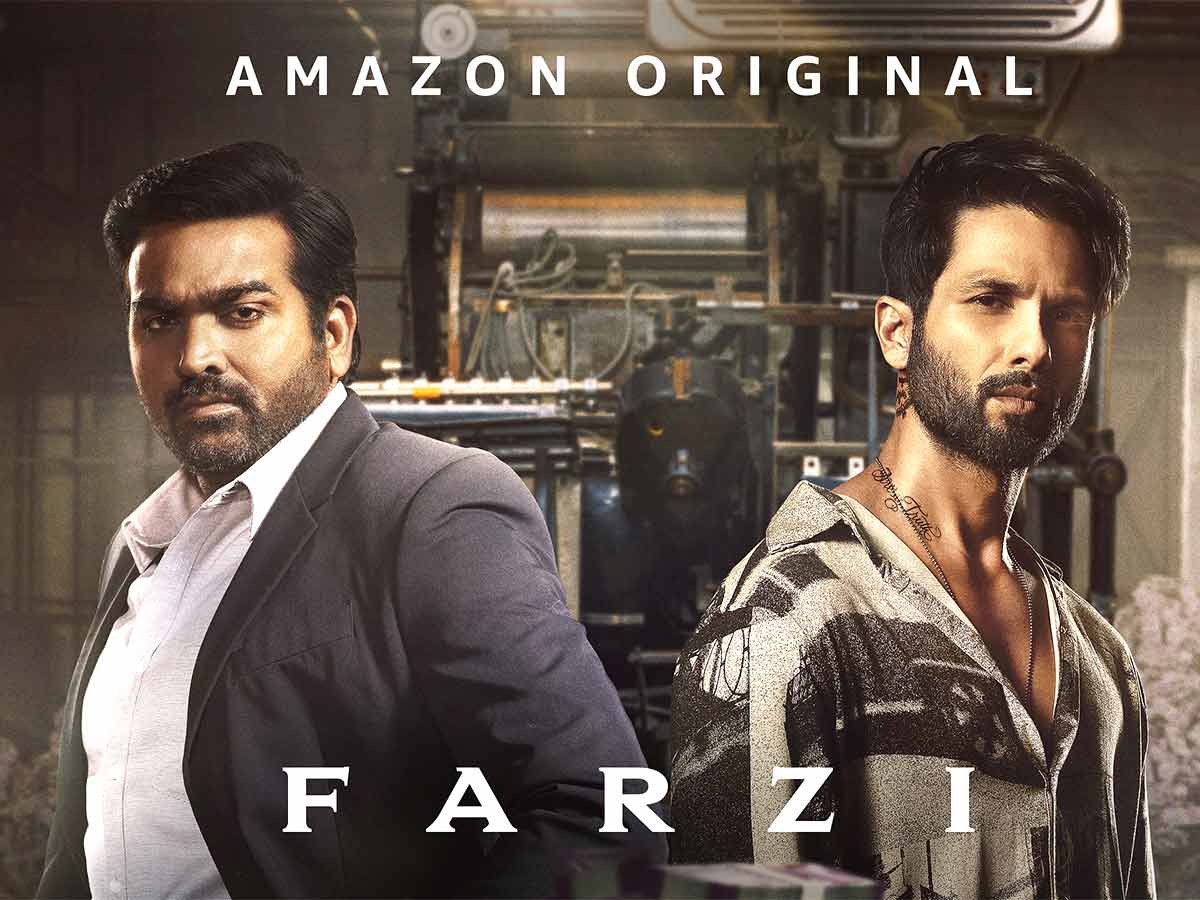What happens when an artist breaches the border between art and law? What happens when he begins viewing a common money note as a difficult piece of art? Raj and D.K., the writer-director combo, have an unusual ability to create appealing individuals coping with today’s sociopolitical reality. Their canvas grows larger than life, yet they manage it with the finesse of master artisans intent on making sense of the zardozi of emotions and ideas through a thread of cutting humor. They expand the everyman secret agent universe that they established with The Family Man with Farzi. The potential is tantalizing… yet after eight episodes that deliver enough thrills and much to laugh about, the series leaves one with the impression that they were sold a dummy.
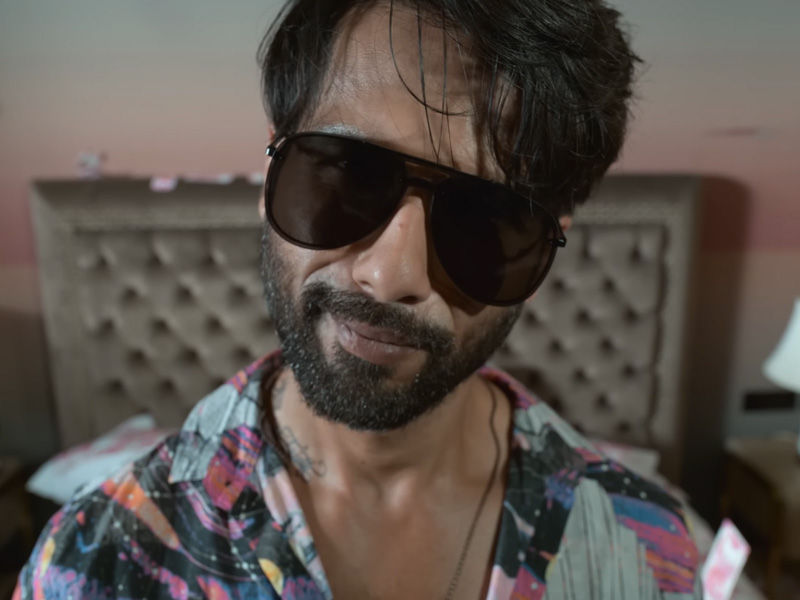
Shahid Kapoor has excelled in parts where the character’s self-esteem is under attack throughout the years. As the anti-hero Sunny, he combines gloomy intensity with an impish smile in a performance that is reminiscent of his own life. Sunny is abandoned by his father as a youngster and grows up in the shadow of his virtuous maternal grandpa (Amol Palekar), who publishes the newspaper Kranti Patrika and paints The Thinker with shaking hands. However, the young artist observes the world around him and pays more for counterfeits than for genuine works. Sunny’s thoughts on revolution fade as he watches the tree wilt under the weight of debt and rampant corruption. However, to preserve Nanu and his collapsing ideas, the artist crosses over and sells his craft to the highest bidder. Sunny is drawn into a black hole as his ego and ambition get the better of him, and we see how a man is devoured by circumstances.
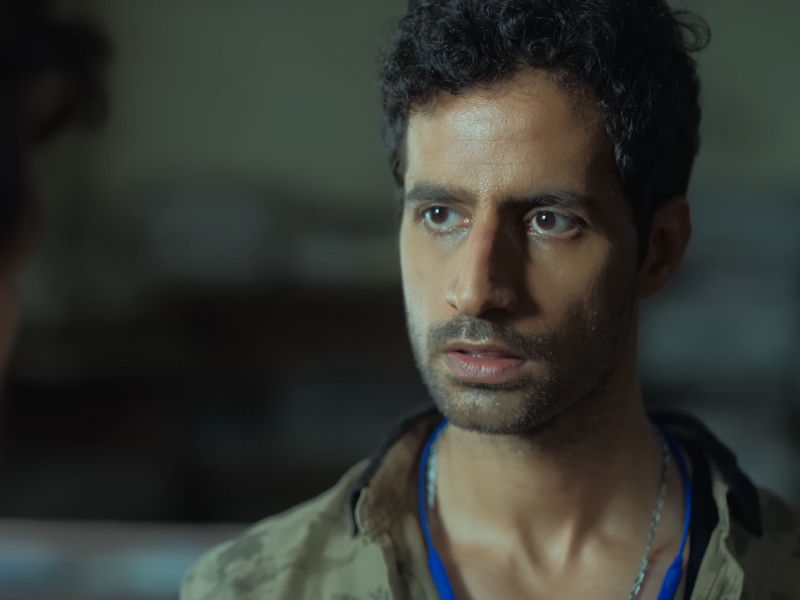
The plot is peppered with moral quandaries that are difficult to resolve. Sunny feels concerned because he is afraid that his Nanu, whose memory is fading by the day, would learn that he has breached his trust.
The scene in which Sunny embraces his Nanu from behind made my eyes well up. The pure presence of Palekar, who selects his assignment with care, makes us trust in the ideological slugfest’s sincerity even when the authors lose track.
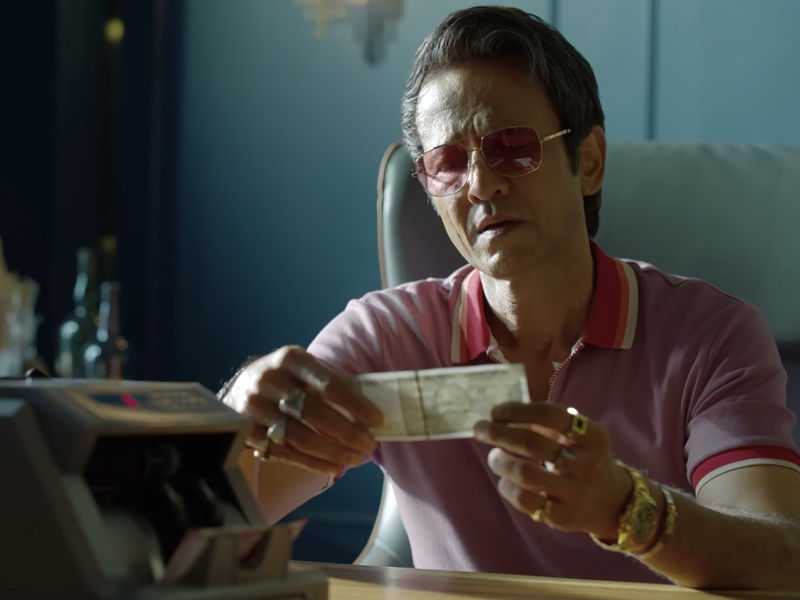
On the one hand, there’s Michael (Vijay Sethupathi), an unlikely efficient officer fighting personal battles and dedicated to ridding the country of the scourge of counterfeit currency, and on the other, there’s Mansoor (Kay Kay Menon chews up the scenery with his trademark flourish), a reptilian figure who gives Sunny’s imagination and ambition for his purpose wings. Sethupathi is properly subdued and appealing; there is a tenderness in the way he delivers his words in Hindi that even the expletives seem lovely. It provides a fascinating contrast between his physical and verbal intonation, and it reminds me of Mohanlal, who also portrayed a dedicated law enforcement officer in Company. His family tale isn’t quite as compelling as Shrikant Tiwari’s, but Sethupathi makes it bearable until Michael compares notes with Tiwari in the next season.
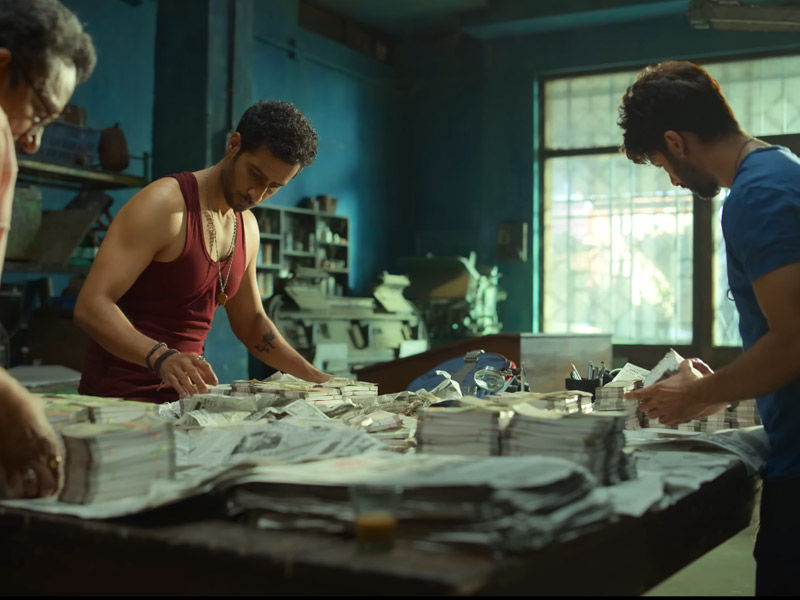
It’s the opposite way around with Shahid. He comes across as an endearing rogue whose circumstances force him into a quagmire. It’s a shame we don’t get to see a showdown between the two in the first season, as the streaming services conspire to keep the fires blazing for a second season, even if it means sacrificing the storyline and losing viewers’ interest.
In between, there’s a standard but the well-written track in which Sunny infiltrates the crack squad via Megha (Rashii Khanna), a counterfeit cash expert who can see through the ruse but stumbles when it comes to matters of the heart. The section is structured in such a way that one doesn’t mind suspending reality for a moment; Rashii is also striking as a girl who isn’t overly distracted by Sunny’s powers.
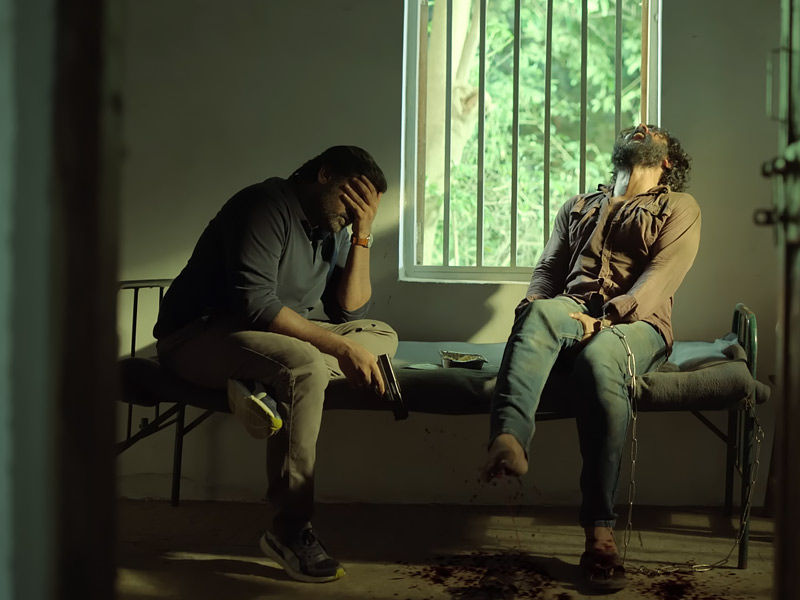
Also, Read YOU Season 4: Joe Goldberg’s Risky Reinvention Pays Off
As usual, the Raj and D.K. world is interlaced with current events and an electrifying background soundtrack. Minister Gahlot’s (Zakir Hussain) desire to attach everything to election politics is understandable, and Michael’s ability to sell him the concept of a huge photo in the newspaper every time the minister slows his feet on national security matters is laughably plausible.
However, despite the character development and solid performances, the honest viewpoint and immersive experience of The Family Man is lacking here, as the filmmakers appear to be intent on convincing us that we are witnessing something clever and well-researched with a bleeding pen.
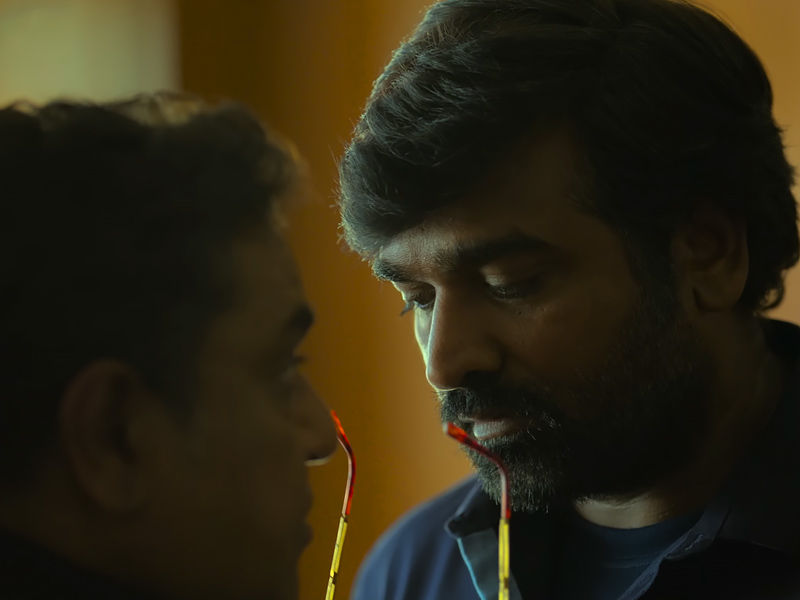
Farzi appears to be the work of a magician who repeats his performance based on market demand. The seamless socio-political criticism of The Family Man becomes redundant and even disturbing at points here. The screenplay is like that eye-catching garment with an unstitched lining that gives way over the rough and tumble of eight episodes. There are times when it appears that the writers’ study notes on counterfeit cash have crept into the narrative and we are witnessing a how-to manual for making phony banknotes unfold on-screen.

Surprisingly, the writers have spent hours describing the business of counterfeit cash yet have left the story’s nuts and bolts free. Some of the plot twists are too easy to pull off, the backstories are uninteresting, and a major character is dropped without adequate consideration. Farzi feels like Sunny’s super note, a sham behind the shine, because of this mismatched attitude.
Farzi is presently available on Amazon Prime.





















